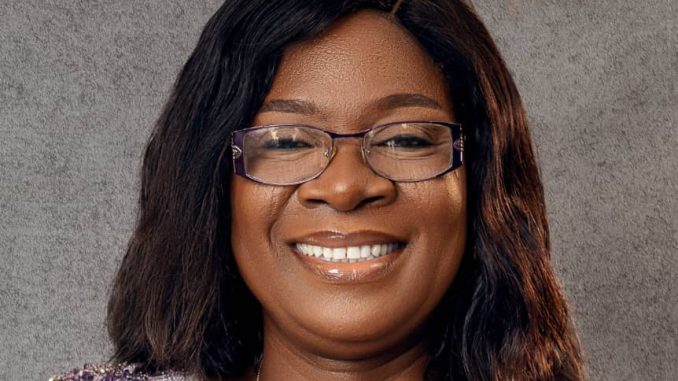
By Professor Prisca Olabisi Adejumo
May 21, 2024
Cancer remains a significant public health challenge in Nigeria and the recent epidemic posture is scary. The burden is significant, with increasing incidence rates and limited access to specialized care posing formidable obstacles to effective prevention and treatment. Amidst these challenges, cancer genetic counselling – a critical component of cancer care that is often underutilized and underrecognized in Nigeria emerges as a crucial service, yet its availability remains limited. In this write-up, I will delve into the pivotal role of nurses in cancer genetic counselling, highlighting their potential to bridge gaps in Nigeria’s healthcare landscape and enhance patient care and outcomes.
Cancer genetic counselling is a specialized service that aims to assess an individual’s risk of hereditary cancer and provide personalized recommendations for screening, prevention, and management based on genetic risk factors. During genetic counselling sessions, a trained counsellor or healthcare provider reviews the patients’ medical history, evaluates hereditary cancer risk, discusses genetic testing if need be and available as well as offer guidance on risk reduction and support services available. This is to empower individuals to make informed decisions and manage their cancer risk effectively. By identifying individuals with an increased susceptibility to certain types of cancer, genetic counselling enables early detection, intervention, and risk reduction strategies that can significantly improve patient outcomes and reduce the burden of cancer in the population.
Despite its proven benefits, cancer genetic counselling services are scarce in Nigeria, with limited access to trained cancer genetic counsellors and genetic testing facilities. This scarcity leaves many individuals and families unaware of their genetic risk factors for cancer, leading to missed opportunities for early detection and prevention. In this context, nurses can play a pivotal role in bridging the gap in cancer genetic counselling services and expanding access to care for underserved populations.
ALSO READ: Study: Climate change worsens heat waves, increases harm since 1979
Nurses are uniquely positioned to provide cancer genetic counselling services in Nigeria due to their broad scope of practice, holistic approach to patient care, and established relationships with patients and families. With proper training and support, they can effectively deliver cancer genetic counselling services, assess familial cancer risk, facilitate genetic testing, and provide education and support to individuals and families affected by hereditary cancer syndromes.
Moreover, nurses can leverage their expertise in community outreach and health education to raise awareness about the importance of cancer genetic counselling and promote proactive approaches to cancer prevention and early detection. By engaging with communities, advocating for resources, and collaborating with multidisciplinary teams, nurses can help to build a more robust infrastructure for cancer genetic counselling in Nigeria and ensure that all individuals have access to the care and support they need to make informed decisions about their health.
Additionally, nurses can contribute to the integration of cancer genetic counselling into routine clinical practice across a range of healthcare settings, including primary care clinics, oncology centres, and community health facilities. By incorporating genetic counselling into existing healthcare services, nurses can reach a broader segment of the population and identify individuals at increased risk of hereditary cancer who may benefit from genetic testing and counselling services.
To maximize the impact of nurses in cancer genetic counselling, however, several steps can be taken. Firstly, there is a need for specialized training programs to equip nurses with the knowledge and skills required to provide cancer genetic counselling effectively. These programs should cover topics such as cancer genetics, risk assessment, communication skills, and ethical considerations. Secondly, there is a need for increased awareness and education among healthcare professionals, patients, and the public about the importance of cancer genetic counselling. Thirdly, there is a need for improved access to genetic testing facilities and resources in Nigeria. This includes increasing the availability of genetic testing kits, reducing costs associated with testing, and ensuring that testing services are accessible to all individuals, regardless of their socio-economic status.
In conclusion, nurses have a crucial role to play in cancer genetic counselling that holds promise for bettering cancer prevention, early detection, and management in Nigeria. By leveraging their expertise, leadership, and advocacy skills, nurses can help expand access to cancer genetic counselling services, improve awareness of hereditary cancer risk factors, and empower individuals and families to take proactive steps to manage their cancer risk. As we work towards building a more equitable and effective healthcare system in Nigeria, let us recognize, support, and amplify the valuable contributions of nurses in cancer genetic counselling and pave the way for a healthier future for all Nigerians.
About the author:
• Professor Prisca Olabisi Adejumo of the University of Ibadan is a highly qualified nursing professional with dual master’s and doctorate degrees in Nursing and Medical Sociology, and advanced training from the University of Iowa. She is a 2022 Sigma Theta Tau Hall of Fame Award winner. Her research focuses on HIV/AIDS care, wound management, and cancer genetics. Adejumo has significantly impacted nursing education and practice through global collaborations and initiatives like the Focusing Young Nurses Initiative, emphasizing mentorship, lifelong learning, and ethical research.

